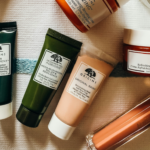Hair loss is not a new phenomenon, but recent reports indicate a surge in people stressing over tresses. As we see the light at the end of one pandemic, is there another on the rise?
In a recent CivicScience survey of more than 5,000 U.S. adults, half say they’ve experienced hair loss.
Most people are aware that hair loss occurs more in men than it does in women, but the preconceived notion of older adults being the more affected by hair loss might be inaccurate.
The age data might come as a surprise, but sources indicate that hair loss is in fact pervasive, and not totally tied to age. People feeling the effects of instability, fear of the unknown, illness, lack of control, and a host of other pandemic-incited situations and emotions have a grim relationship with their hairbrush.
CivicScience data show hair loss correlating with specific job experiences – remote workers report suffering from hair loss more than people who were likely facing financial insecurity at some point during the pandemic. General concern about being in public, as well as intense experiences of fear, were also potential indicators of hair loss.
Even before the pandemic and the pervasive anxiety that came with it, hair loss in young people was occurring at a fairly abnormal rate. Medical professionals say hair loss in young people is often a side effect of stress, but also diet. Corroborating what has been studied about meatless diets, CivicScience data on vegetarian and vegan diets is eye-opening.
Furthermore, when looking at the age of respondents eating a vegetarian and vegan diet, we see the majority of people eating both vegetarian and vegan are under 45.
Additional data make a correlation between hair loss and diet even more plausible. At a top-level view, healthy eaters and specifically people who avoid fast food report less hair loss than their counterparts. Even exercisers, whether frequent or infrequent, are less likely to experience hair loss.
What People Are (Not) Doing About Hair Loss
As it stands, vitamins for hair growth have been the most popular option for combating hair loss, followed by hair growth shampoo and conditioner, products like Rogaine, a wig or toupee, prescription hair loss medication, and hair transplants.
Americans who are doing nothing about their hair loss are more likely to be those aged 55 and older. Hair loss in adults over 55 is more expected and possibly more widely accepted, which could be why folks of this age choose to live with their receding hairline.
While this characteristic fits the archetypal profile of who you might assume is losing hair, the data suggests that the lack of action around remedying thinning locks may also be related to self-perception.
Those who consider themselves less physically attractive are the most likely to have done nothing about their hair loss. It’s possible that resignation, acceptance, or even defeat could be plaguing those who choose to do nothing about their thinning hair.
Very real stressors continue to weigh on Americans, whether related to the pandemic or not, and considering how eating habits are changing the way people go about their nutrition, the outcome for scalps looks flakey.








